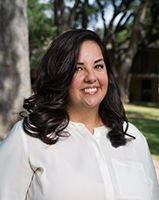Earlier this year, my wife and I decided to invest in a budgeting app. This decision came on the heels of an argument about finances and we felt this would be a good way to help us mitigate our seemingly conflicting perspectives. We took deep breaths, reminded ourselves that this is a normal conflict for couples, and we dove right in.
As we began the process of inputting our financial information, we discovered that our goals with our money aligned much more than we originally thought. We also discovered that our individual beliefs and past experiences with money were informing our defensiveness in our earlier conflict. When we finished giving our dollars jobs such as saving for home improvement projects or a vacation, we were excited to collaborate and connect toward our financial health.
From a counseling perspective, my wife and I were engaging in what is called the rupture and repair cycle. In relationships, it is inevitable that we will experience ruptures, or conflicts where we miss the mark with the other person. The goal is to engage in repair or reconnecting with humility and openness to get back into connection. In child-parent counseling, we often say, “It may be more important what you do after what has been done.” The budgeting app further facilitated our repair with one another and helped us find more points of congruency with each other than we had previously assumed.
This strikes me as an important connection to our understanding of the process of our salvation. Salvation is an event and a process, one akin to rupture and repair cycle. As humans, we regularly miss the mark and God in his mercy reaches for us in the rupture and repair cycle. One model for our response can be found in our weekly prayer from the Book of Common Prayer:
“Most Merciful God, we confess that we have sinned against you in thought, word, and deed, by what we have done, and what we have left undone…Almighty God have mercy on your, forgive you all your sins through our Lord Jesus Christ…”
Engaging in this regular rupture and repair cycle with God can bring us back into connection with him, his love for us, and for his creation. The rupture and repair cycle with God can also offer us an opportunity for reflection.
What are my beliefs and defenses that draw me out of connection with God?
What are the spiritual practices in my life that can facilitate my openness and humility when I miss the mark with God, with others, and with creation?
What can the rupture and repair cycle teach me about my relationship with money and stewarding my resources?
There is also nugget of wisdom here for us as a broader community in how we steward our resources. As a community, we will engage in normal conflict, specifically in discussions about resources, and it may be more important that we show up with humility and openness in the repair process. If we are willing to engage in the rupture and repair cycle at a community level, we may find that our goals with our resources are much more aligned than we may realize. And finally, it can be life-giving, connecting, and motivating to join together as a community, with God, in spiritual practices of reflection and accountability with regard to stewarding our resources.
How can I practice the loving-kindness that God demonstrates towards me in the repair process towards myself and to others?
What part can I play in regular, intentional conversations in the housekeeping of community resources?
What are the spiritual practices or mechanisms in my community that could help foster intentionality in stewarding our resources?
This fall, Sowing Holy Question will explore questions of stewardship, reflecting theologically on practical decisions about money, possessions, ecology and our connection to God’s creation.


